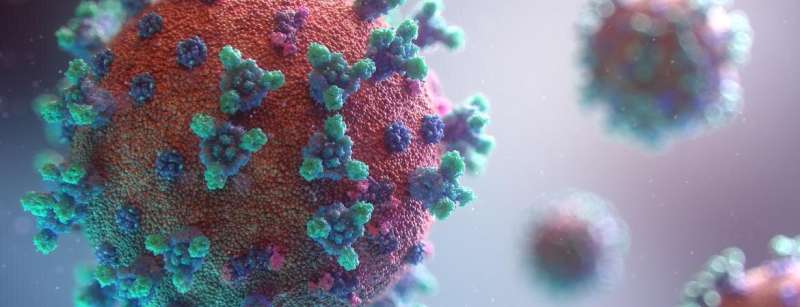Bioengineer explores selective immunosuppression to calm cytokine storms

Sometimes when the body's immune system ramps up to fight a viral infection it goes a little overboard.
Injured or infected cells produce small signaling proteins called cytokines that rally immune cells such as macrophages to destroy invaders and help the body heal. Some viral infections, such as influenza and SARS, can trigger an avalanche of cytokines, which recruits too many macrophages and other immune cells. These cells end up targeting the body's own cells in addition to viruses, damaging tissues and organs. Scientists call this a "cytokine storm."
Cytokine storms can damage organs badly enough to accelerate COVID-19's progression and severity in lung tissue, even leading to death. Cytokine storms have been found in severe and critical COVID-19 patients and may be one of the major causes of death. Lungs of dead COVID-19 patients are full of liquid and excess immune cells.
Doctors are currently exploring selective immunosuppression to control cytokine storms in COVID-19. But damping excess cytokine signaling without suppressing the overall immune effort necessary to fight the virus requires a delicate hand.
Jiayu Liao, an associate professor of bioengineering at the University of California, Riverside, works on cytokine signaling regulation, including the inhibition of cytokine signaling in influenza. He has worked on proteins called IFN gamma, TNF alpha, and IL6, which are the major players in cytokine storms.
Earlier, as a postdoctoral scholar at the Scripps Research Institute, he discovered a new mechanism to suppress some of these proteins that eventually led to creation of the drugs ozanimod and siponimod to treat multiple sclerosis, an autoimmune neurodegerative disorder. His group is testing new cytokine inhibitors in cell cultures and hopes to move to an animal model soon.
Liao is currently working to learn how a process called SUMOylation directly regulates viral replication and cytokine storms and modifies proteins in influenza viruses. SUMOylation occurs when small ubiquitin-like modifier, or SUMO, proteins attach to and detach from other proteins to change their biochemical activities and functions. He uses fluorescence resonance energy transfer, or FRET, to locate SUMO proteins on influenza virus proteins and identify how they alter the virus' replication.
What Liao's group learns from the influenza virus can be quickly transferred to COVID-19. Proteins in some coronaviruses are also modified by SUMOylation. Liao expects that SARS-CoV-2, which causes COVID-19 and is closely related to these other coronaviruses, is also modified by SUMOylation. He plans to delineate how SUMOylation affects functions of SARS-CoV-2.


















